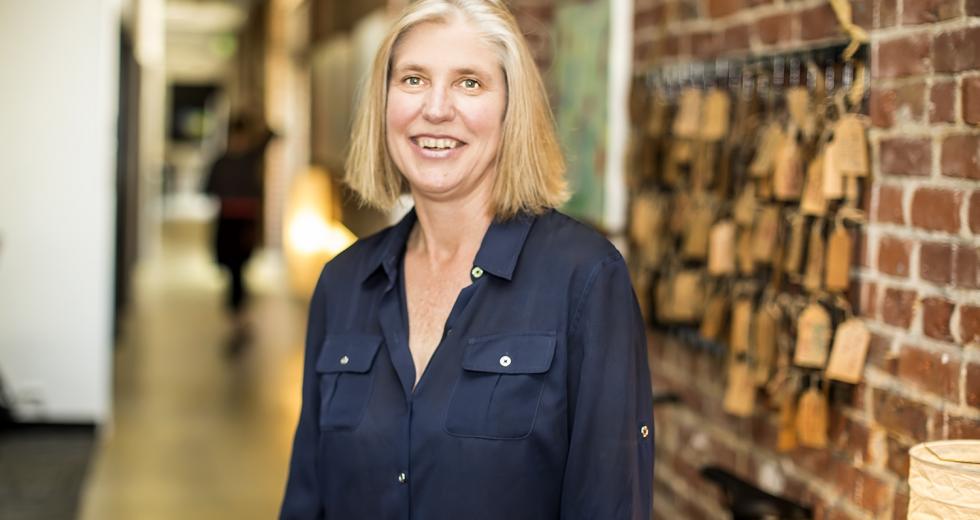FourthWave, a nonprofit accelerator program for women-led tech companies, expanded from its Los Angeles pilot to Sacramento in March and is already working with its first seven entrepreneurs. We sat down with Cheryl Beninga, who is the managing director of Beninga Advisors and who cofounded FourthWave Sacramento with Tracy Saville, CEO of Sofia Al., to talk about women in technology and the regional tech scene.
FourthWave’s first Sacramento cohort of female founders include:
Kim Box,
president and CEO of Gatekeeper Innovation, Inc., who invented Safer Lock to secure prescription medications
Chiara Cecchini,
founder and CEO of Feat, which offers a fitness tracking solution for corporate wellness programs
Beth Dodson,
cofounder of the HomeZada app that tracks home management duties
Dr. Angela Gelli,
president of NanoCERE Technologies, which fights neurological diseases by using nanotechnology to deliver treatment across the blood-brain barrier
Venita Sivamani,
cofounder of Dermveda, an educational skin care resource
Dr. Le Vuong,
founder and president of Fishrock Laboratories, which developed a superfood to reduce nutritional deficiencies in underserved nations
Janine Yancey,
founder and CEO of Emtrain, an online education company seeking to increase organizational health
What does FourthWave do?
Our intent is to help close the gap in two critical areas where women tend to struggle in terms of creating successful, scalable technology companies. The first is mentorship. We recruited a fantastic network of women experienced in various aspects of technology — from engineering to marketing to legal to accounting to IP to leadership. The second component is there’s a funding gap for women. Depending on the data you look at, only 10-16 percent of all venture capital money goes to women. In addition, there aren’t a lot of women making decisions in these investment groups. I think there’s a really great opportunity for women-led investment funds to take advantage of the blind spots, if you will.
How is the FourthWave approach different?
There are various accelerator programs in our region, but there’s not one just focused on women. So that is new. FourthWave also adds an element that I am excited about: ‘conscious leadership,’ which means developing leadership skills to create a learning culture where the company can rapidly develop new products and services.
How did the Sacramento program get off the ground so quickly?
The City of Sacramento has been instrumental in bringing FourthWave to life through a [$25,000] grant from the RAILS innovation program. Obviously, if you’re going to invest money, you want to invest in something that has a high probability of succeeding. That success comes a lot faster if you can take an existing program that works. The FourthWave model was first tested under Mayor Eric Garcetti in Los Angeles. [FourthWave founder] Nancy Perlman started the program in L.A., and it was part of her original objective to get other cities to adopt the model. Sacramento was the first city to step up, but I think other cities will want to do this as well. Across the board, women are underserved.
Does Sacramento compete with the Bay Area for tech talent?
We are really one big region, from the Bay Area to Sacramento. There are reasons for some people to want to be in Sacramento. For example, Fantag [a mobile video technology company that Beninga serves on the board of] recently relocated here from San Jose. The company is partnering with a number of sports-related companies here. But there are strengths of talent from the Bay Area that may not be as readily available here. So there’s a win-win by the regions taking the best of each.
A recent Forbes column called Sacramento an emerging new tech hub. Do you agree?
I’ve been in Sacramento for several decades doing technology, and this is the best I’ve ever, ever seen in terms of the number of new companies, companies moving here, spinouts coming out of our universities. We have the Urban Hive and there are multiple co-working spaces with support for entrepreneurs. We have public and private investment throughout the region, so we have a lot going on. The Fantag employees who moved here love it because they can get more space, the traffic is much better. Our lifestyle in Sacramento attracts a set of people. But our proximity to the Bay Area is a huge strength. The talent and the funding there can’t be replaced anywhere in the world.
Why Sacramento?
There’s a history of entrepreneurship, starting with the gold miners. There’s this location. We’re the center of the largest tech economy in the world. We’re the capital. We’ve always had those things. But what’s different now? I’d say it’s the intent of our leaders and city government saying, ‘We want to lift up tech entrepreneurs.’ The last thing is this new generation — the drive, the passion and the skill set they have. This is the first generation that never knew the world without the internet. The stuff they think of and do and believe is possible — that’s really exciting.



